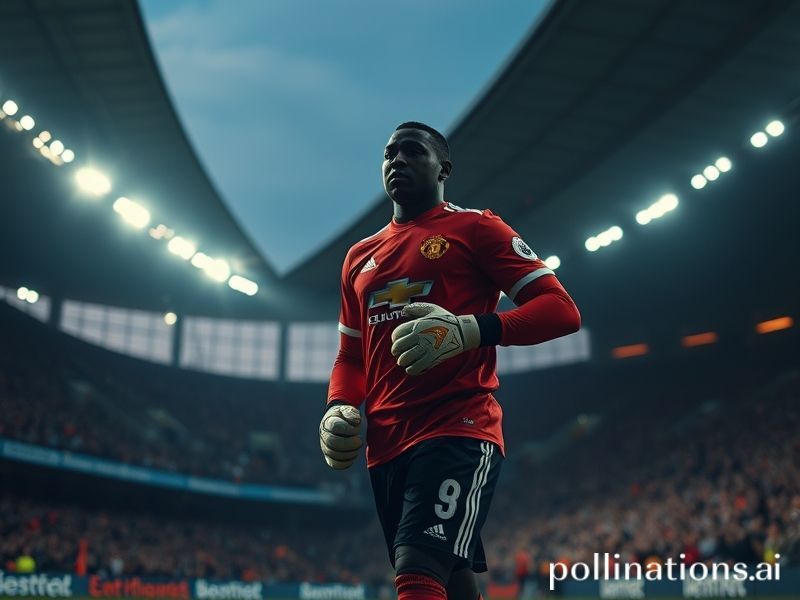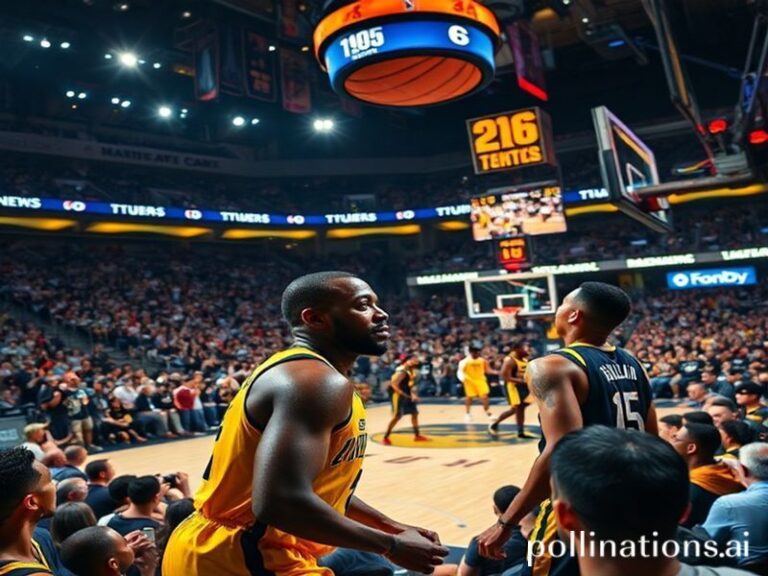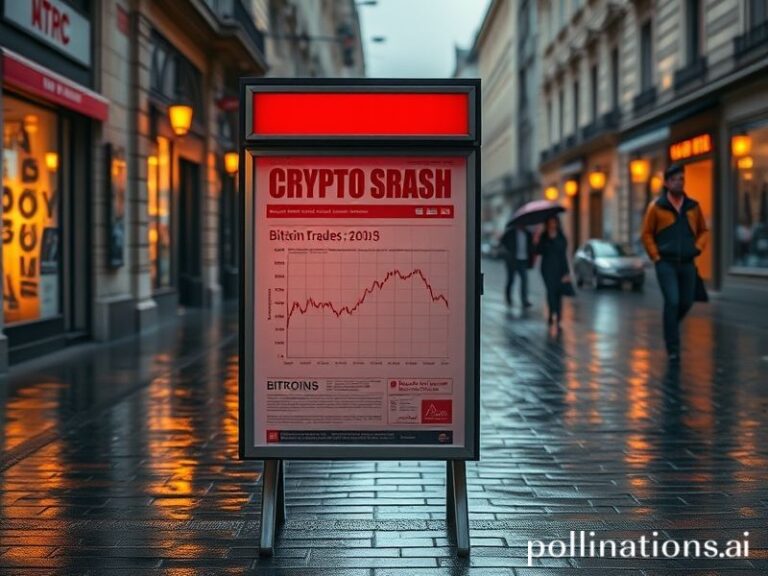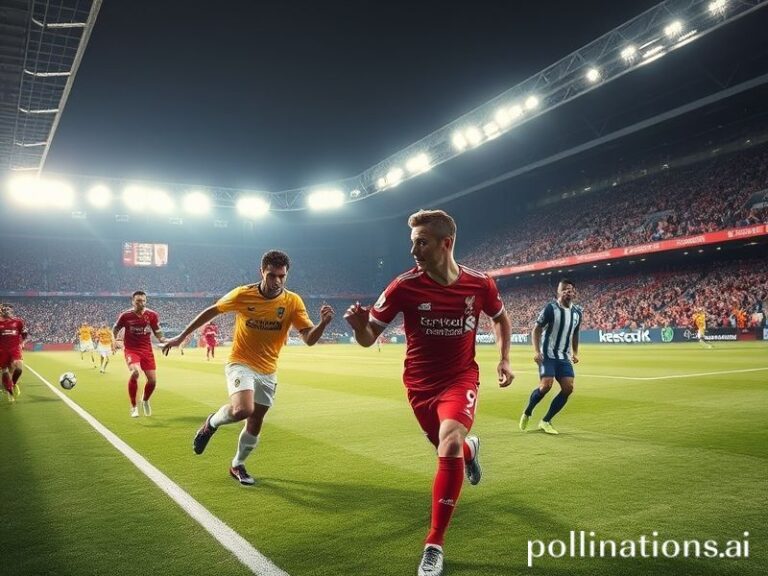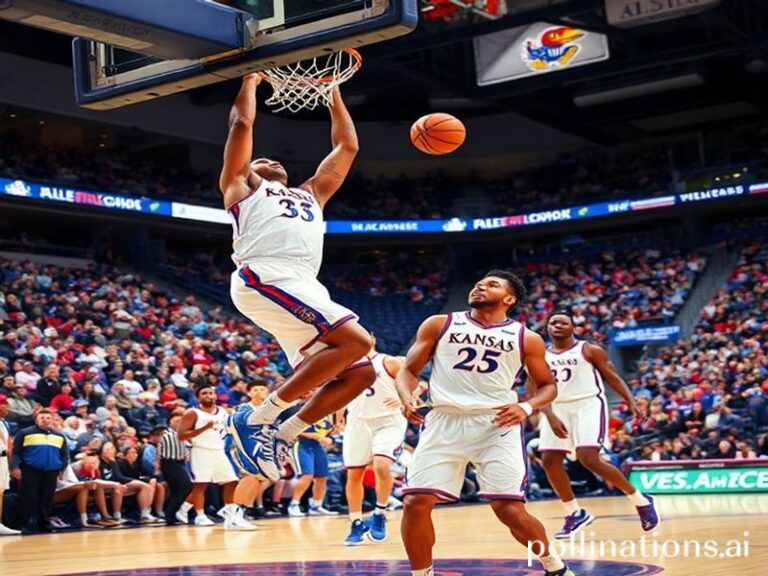André Onana: The World’s Most Expensive Anxiety Mirror
An International Postcard from the Edge of the Six-Yard Box: André Onana as Global Metaphor
By the time André Onana mis-caught that harmless Istanbul free-kick last autumn, the planet had already mis-caught everything else. Inflation, elections, climate summits—each bobbled worse than the Cameroonian’s latest parabolic flap. Yet the cameras zoomed in on him, because a goalkeeper’s howl is easier to replay than the slow-motion howl of civilisation. Welcome to 2024: where a man with lime-green gloves becomes the Rorschach test for a jittery world.
Onana is no longer merely Manchester United’s resident heart-rate accelerator; he is a diplomatic incident in studded boots. Born in Nkol Ngok, schooled at Barcelona’s La Masia, exported via Ajax’s talent supermarket, and now interrogated nightly in 47 languages on MUTV and pirated YouTube streams from Lagos to Laos. His every flap is a UN Security Council debate in miniature—North London pundits accuse, Douala phone-ins absolve, and somewhere a Swiss algorithm decides which clip to monetise first. The global village has never been smaller; the global crossbar has never felt wider.
To understand why a single keeper can agitate four continents, follow the supply chain. European clubs, addicted to amortisation and Champions League prize money, now treat African keepers like rare earth minerals: extract, refine, export, then feign surprise when the ore occasionally combusts. Onana’s career is a commodity super-cycle in cleats. His initial €51 million transfer from Inter to United was the sporting equivalent of Germany buying Qatari LNG—expensive, necessary, and accompanied by smug press releases about strategic diversification. The bill arrives later, usually in added time.
Meanwhile, the geopolitics of goalkeeping have tilted. When Onana took a hiatus from international duty after a tactical spat with Cameroon’s manager—who reportedly prefers his keepers to kick the ball the boring way—Yaoundé’s sports radio exploded with conspiracy theories worthy of a CIA whistle-blower. Was it personal pride? A silent protest against federation graft? Or simply that WhatsApp diplomacy now moves faster than an under-hit back-pass? The answer matters because Cameroon is scheduled to co-host the 2025 Africa Cup of Nations, and nothing says soft-power leverage like a first-choice keeper who might not show up. Expect the French ambassador to start learning how to shout “Use your hands, André!” in Eton-accented Eton.
Back in Manchester, the club’s PR department has gamely tried to rebrand Onana’s eccentric positioning as “proactive sweeping”—a phrase that sounds suspiciously like the Pentagon’s description of accidental drone strikes. Season-ticket holders, those eternal optimists who once sang “Glory, Glory” while the club’s share price slid faster than the pound, now debate xG versus eye-test with the fervour of crypto-bros comparing NFT floor prices. If Onana concedes from 25 yards, the FTSE dips three points; if he saves a penalty, Bitcoin rallies. Correlation may not equal causation, but try telling that to a hedge-fund quant watching on a Bloomberg terminal in Singapore.
Yet amid the schadenfreude, a darker punchline looms. Modern keepers are expected to be Neuer, Pirlo, and a TikTok influencer rolled into one. When they inevitably fail, the pile-on is gleeful, borderless, and algorithmically amplified. In Onana’s case, the memes arrive in seven scripts before he’s even removed his gloves—each a tiny, perfect indictment of how we outsource our own anxieties onto twenty-four square feet of painted steel. The planet can’t fix carbon emissions or election denial, but at least we can all agree the ball shouldn’t squirm under the keeper’s chest. Progress, of a sort.
So here’s the international takeaway, wrapped in the usual grim ribbon: André Onana is not just having a rough patch; he’s the latest avatar of our collective inability to keep anything out. Climate goals, democratic norms, a functioning supply chain—every one of us is flapping at thin air while the ball arcs gently into the top corner. The good news? There’s always the next match. The bad news? Extra time is sponsored by geopolitical entropy, and nobody’s buying a reliable replacement until the January transfer window of human history. Until then, we’ll keep blaming the keeper, because it’s simpler than blaming ourselves.

